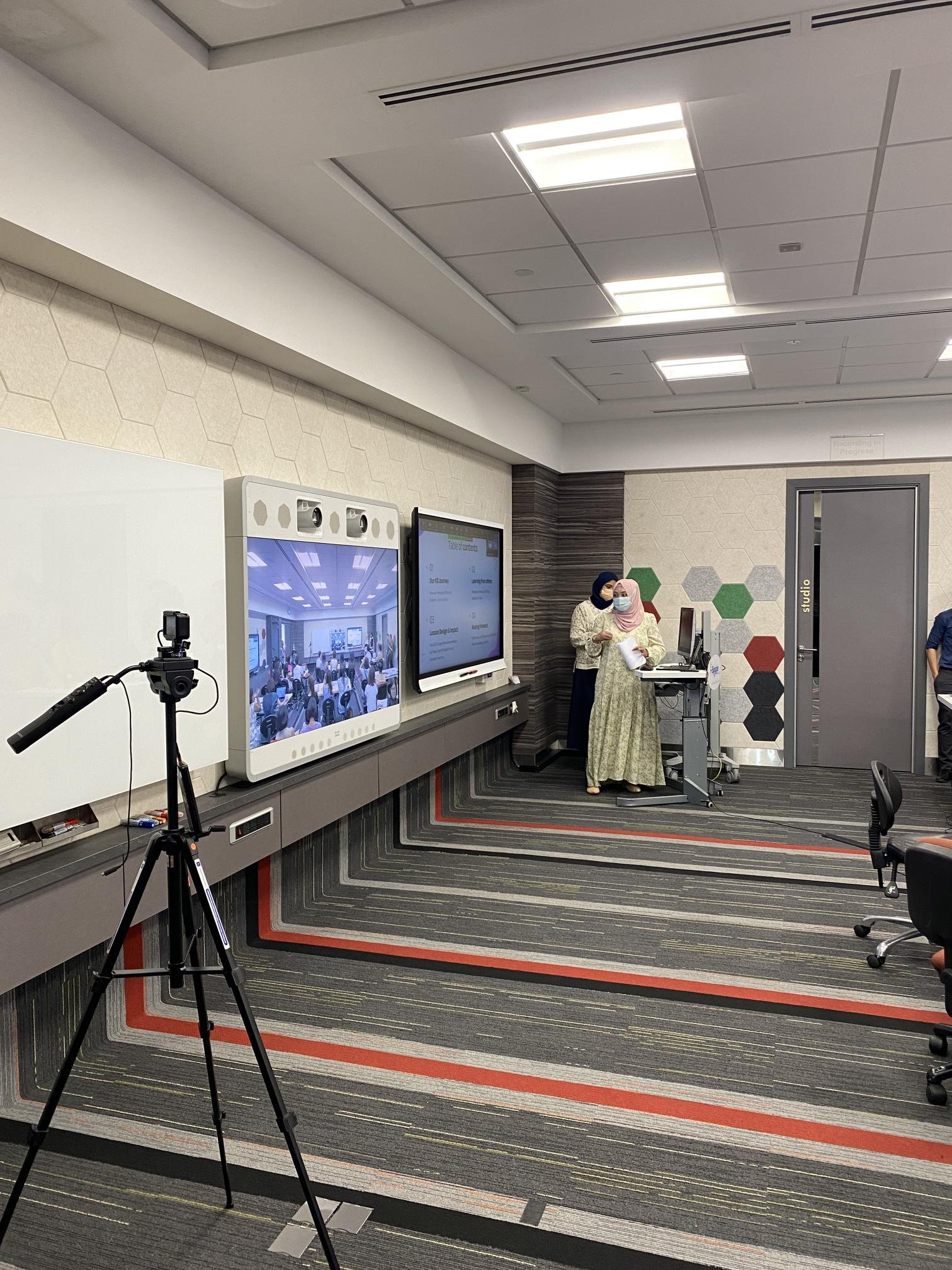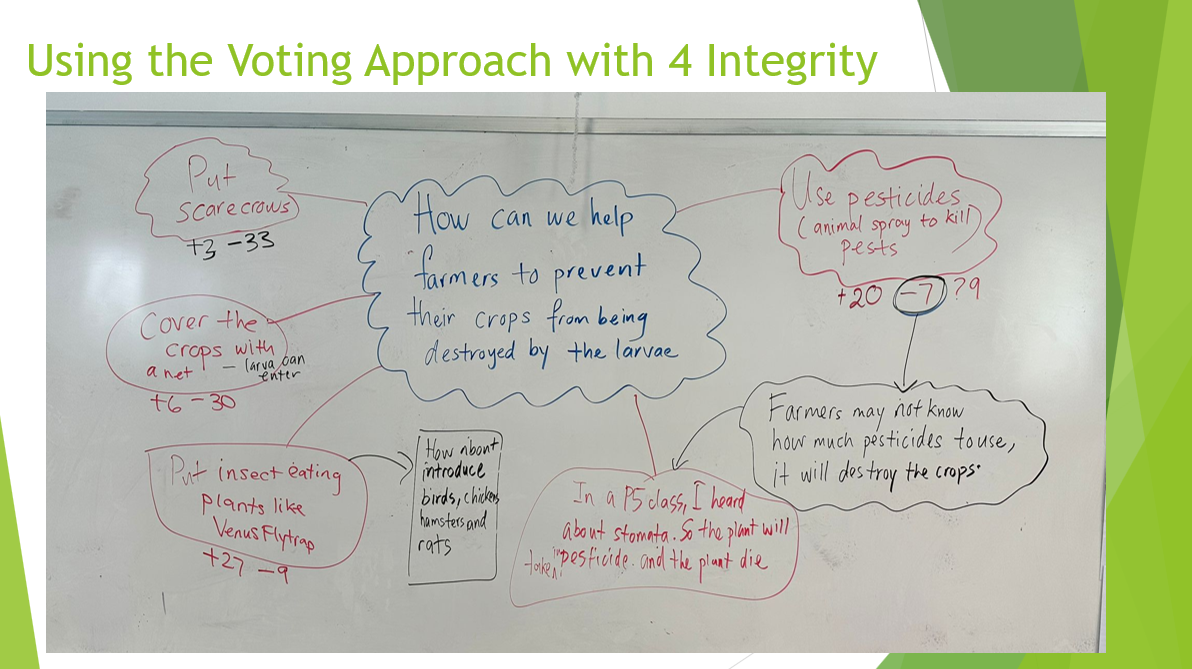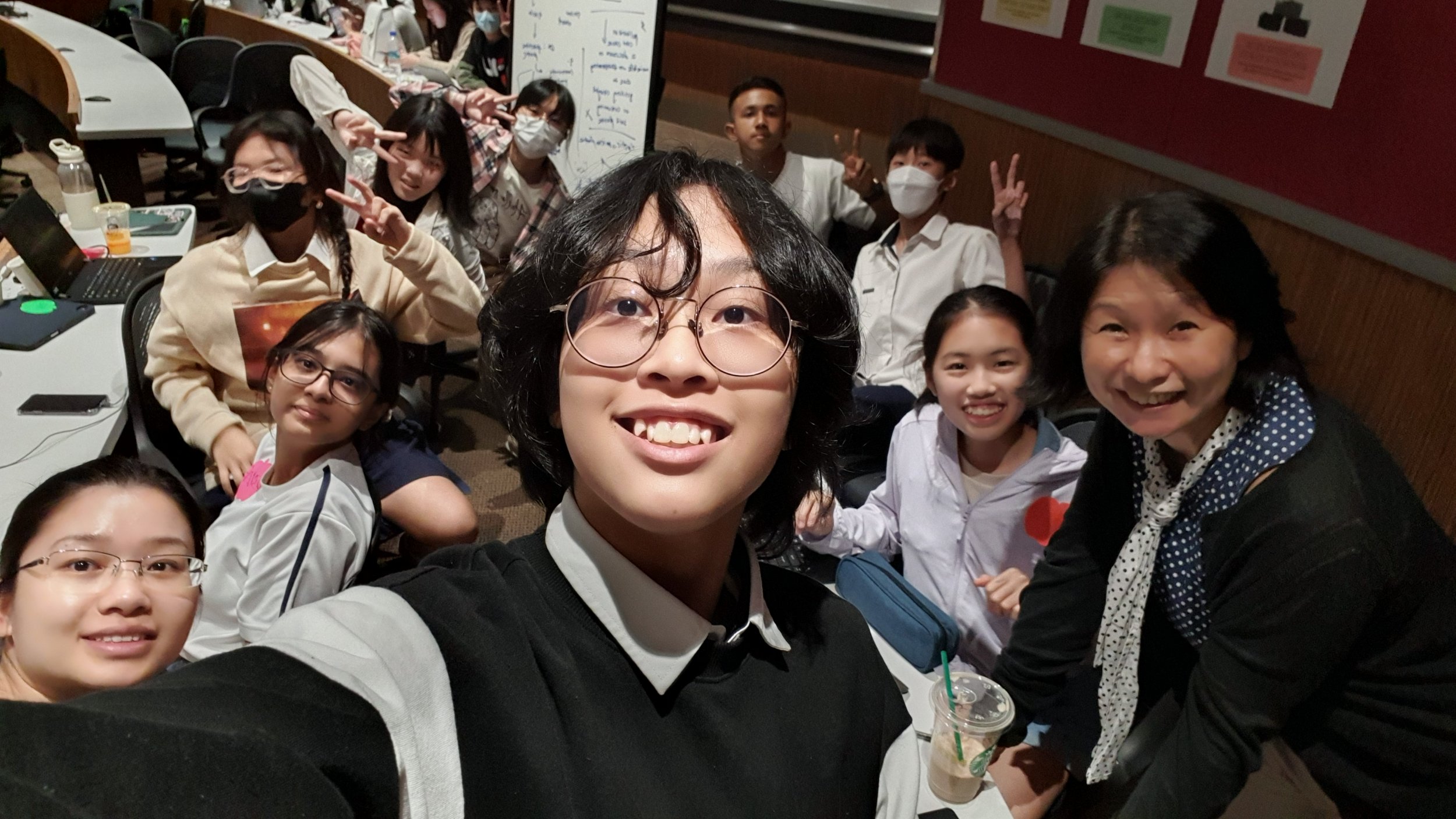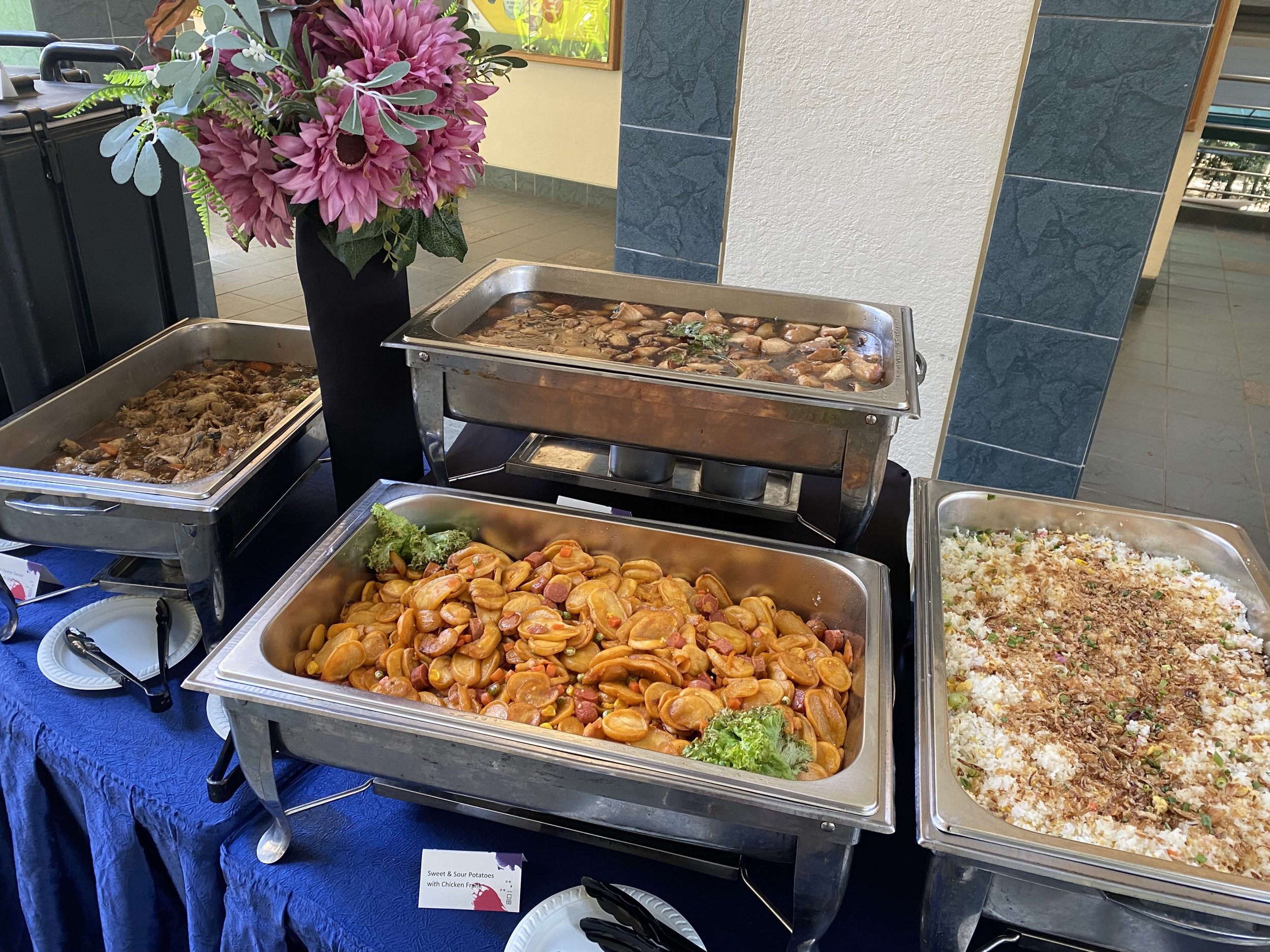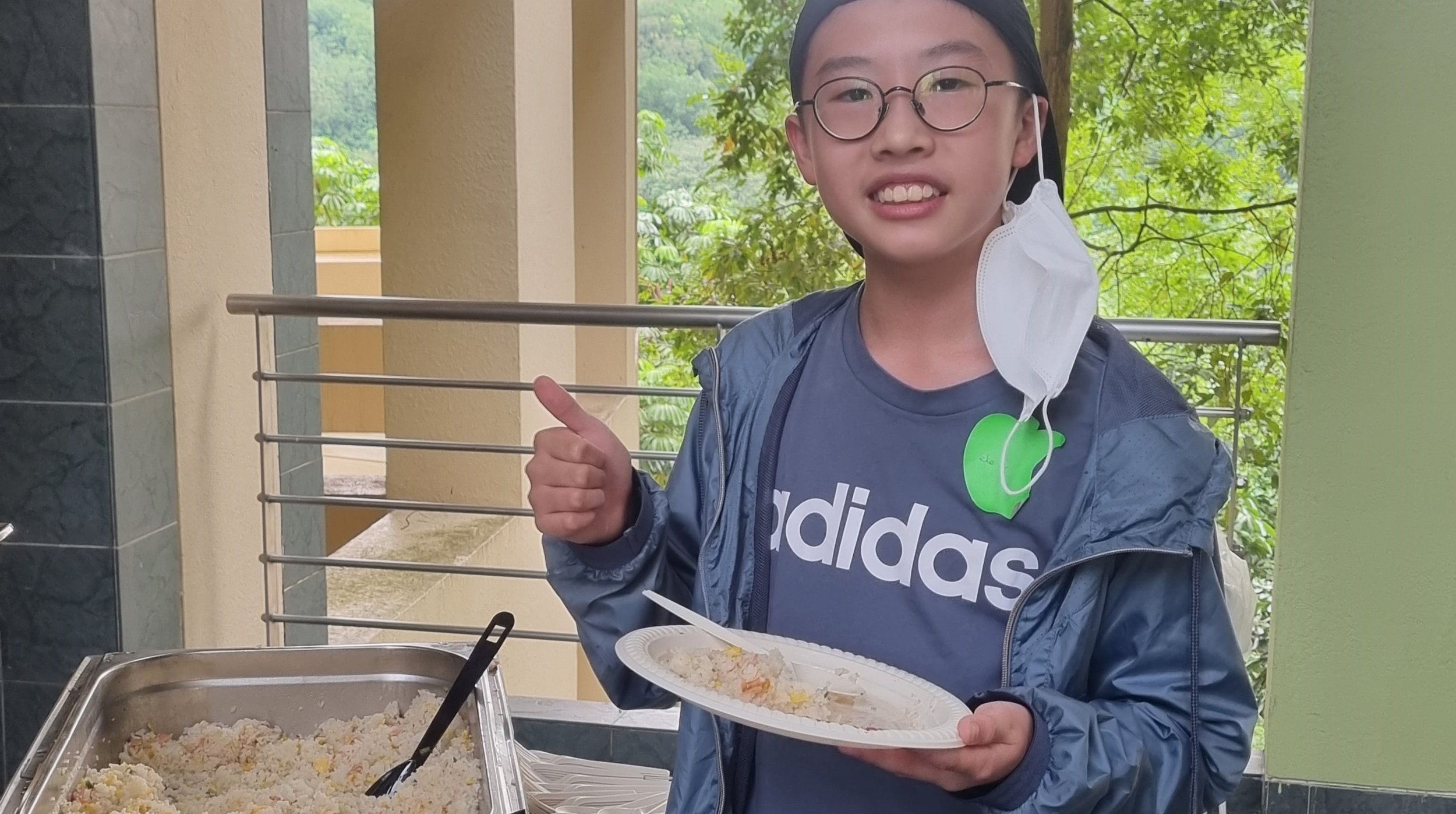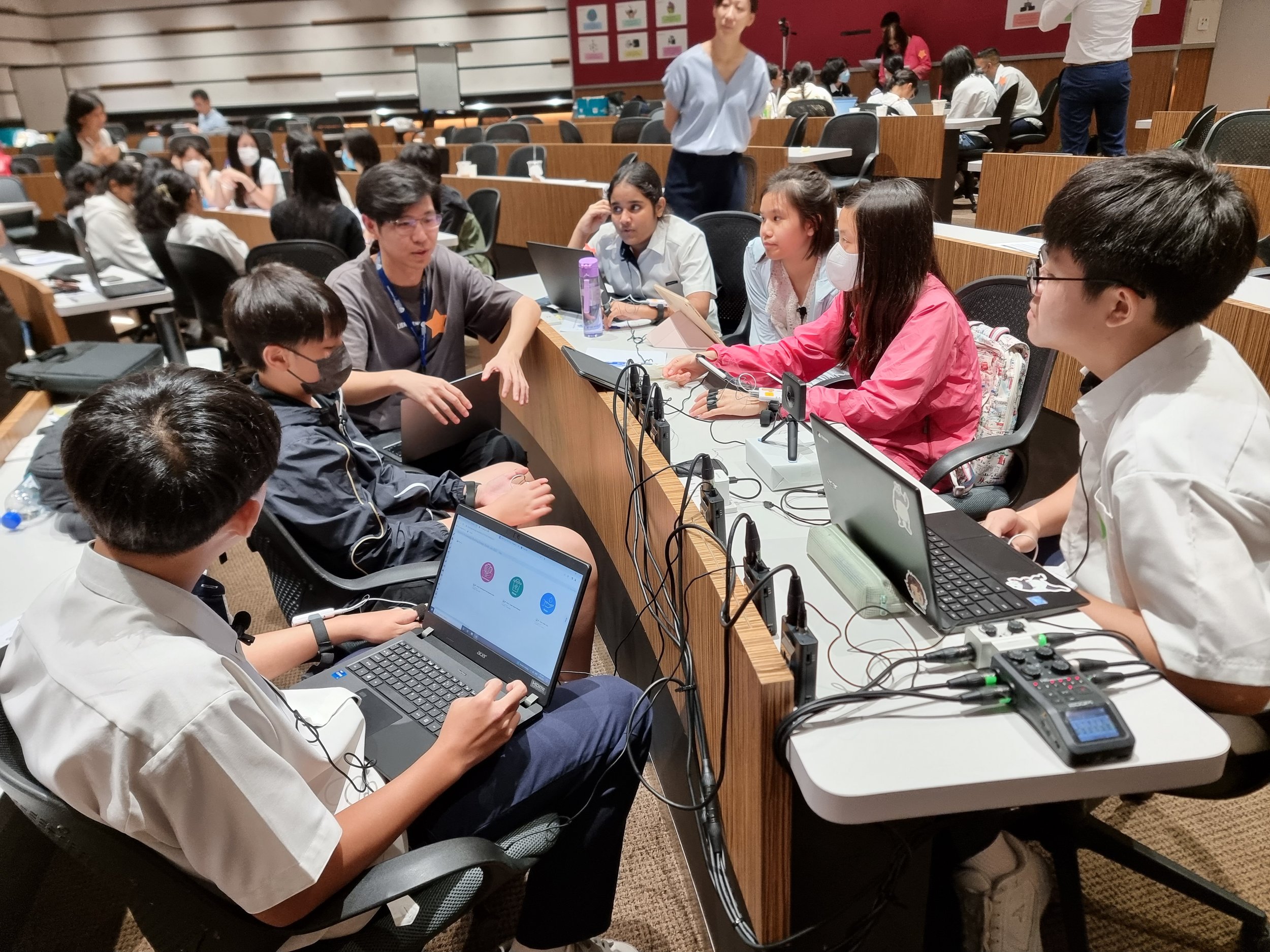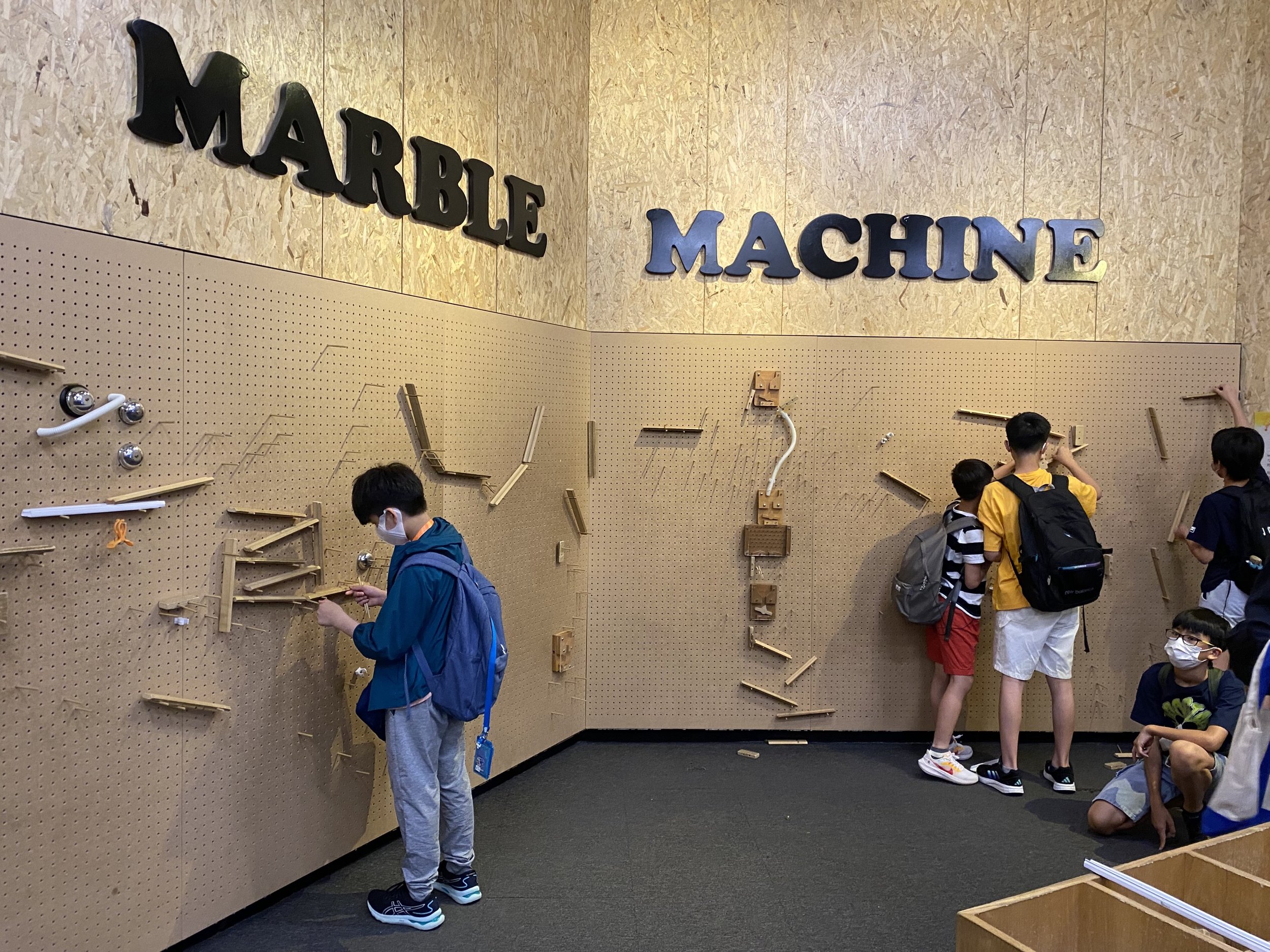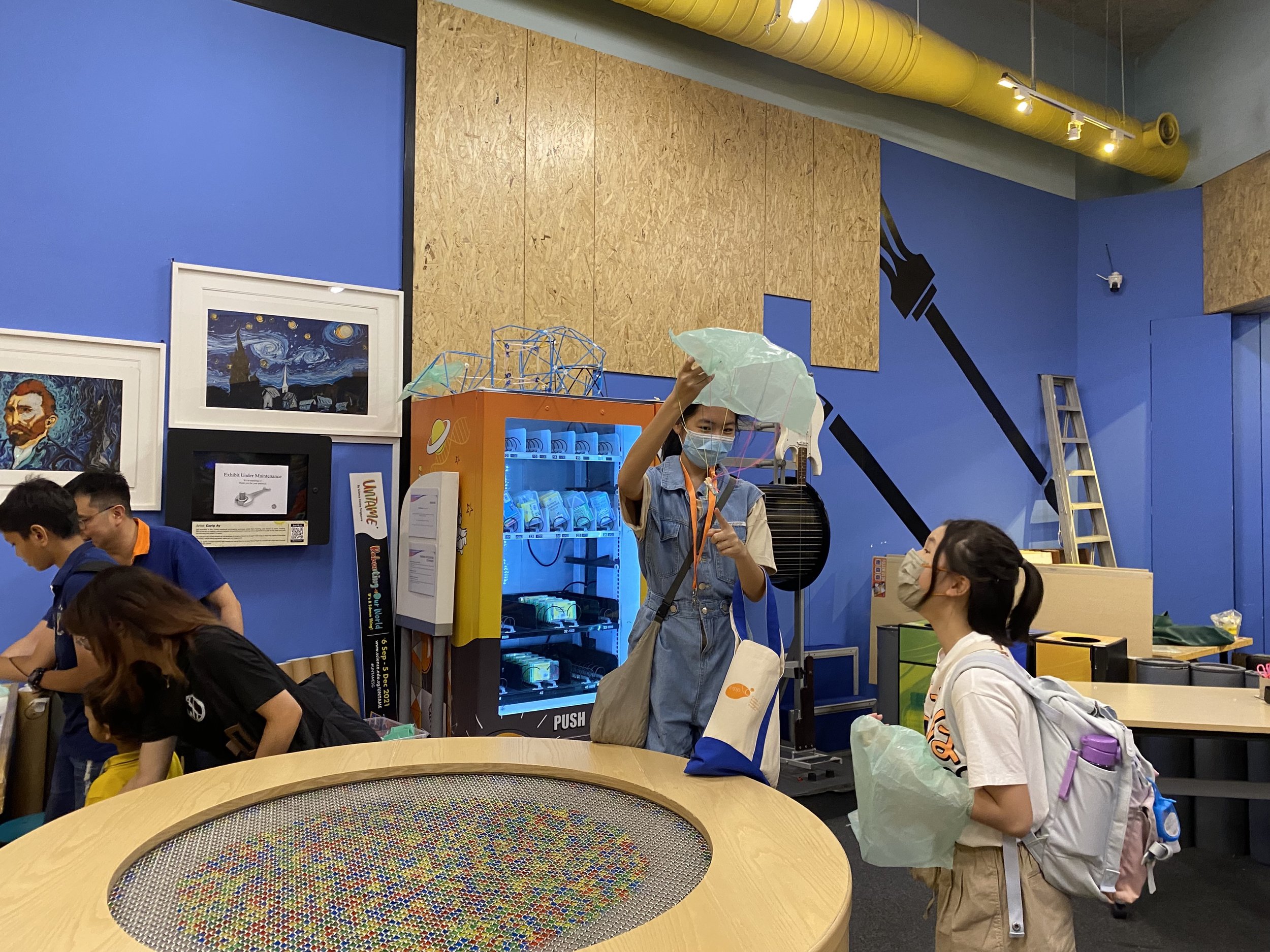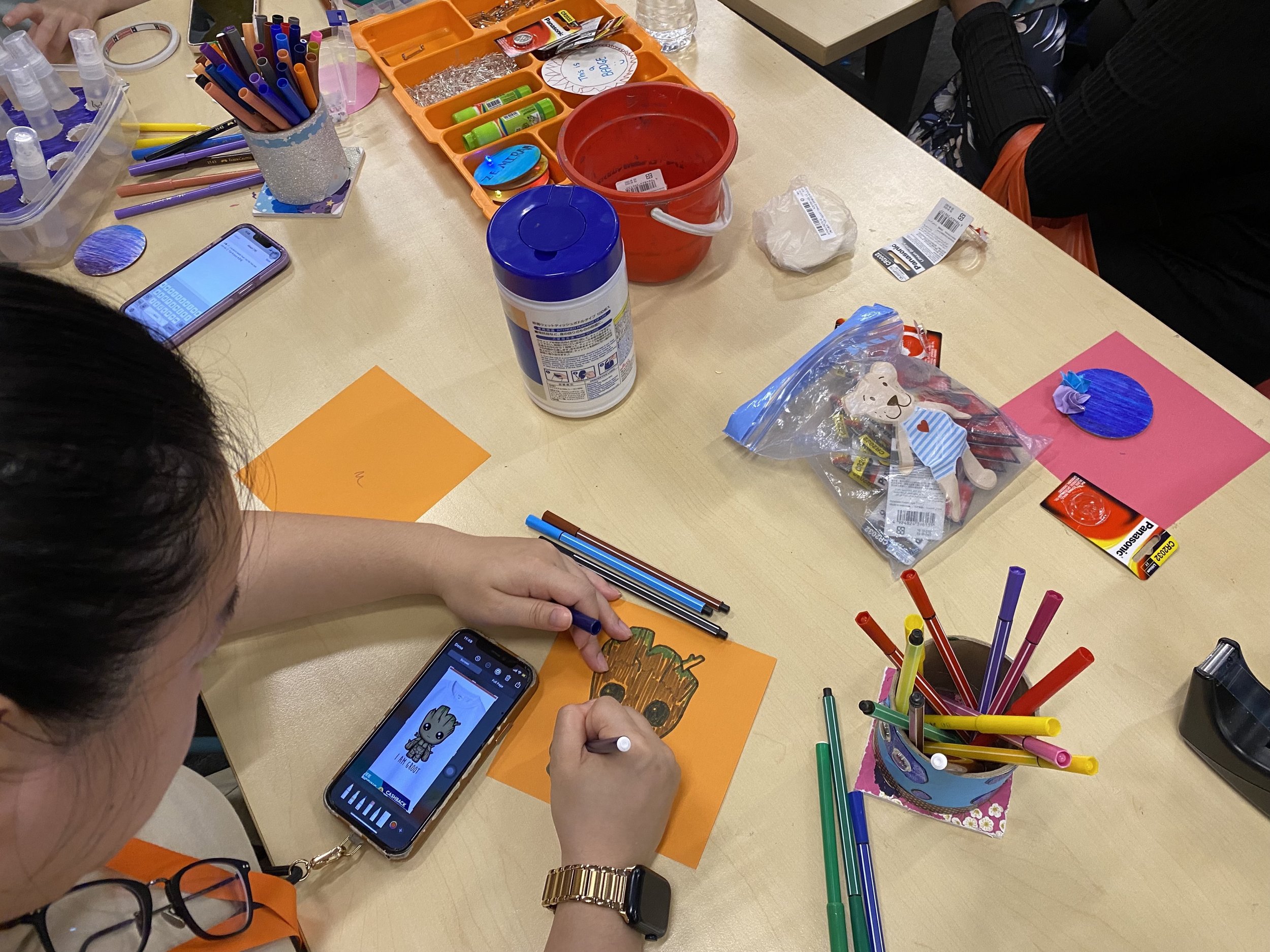Knowledge Building Design Studio
Knowledge Building Design Studio
&
Kids’ Conference 2025
IER0027 - Experiential and Interactive Workshop on Knowledge Building Pedagogy and Technology
Objective
Through the interactive and experiential sessions in this 3-day workshop that is embedded within the student KB Design Studio, teachers will take on various roles (as researcher, as teacher, as learner) to:
Understand Knowledge Building principles and how the principles can be used to design curriculum, classroom environment, and to reason out pedagogical moves and decisions that enable a higher level of student agency
Observe and understand how students engage in and demonstrate various 21stCC processes, e.g. critical thinking, creative thinking in a knowledge building environment,
Learn and practice knowledge building strategies such as KB talk, KB meta-talk,
Learn about assessment for learning using knowledge building technology and learning analytics, and
Experience knowledge building environment integrated with Generative AI.
Outline
The course will cover the following areas:
Knowledge building
Learning Analytics
Session 3: Innovative Practices for Nurturing Potentially Gifted Children
INTERNATIONAL CONFERENCE ON GIFTED EDUCATION PROGRAM: EQUITY FOR THE GIFTED IN AN EVOLVING WORLD
Talk on Integrating Gifted Education with Technology
Speaker: Dr Teo Chew Lee (Deputy Centre Director, (Centre for Research in Pedagogy and Practice, National Institute Of Education, Nanyang Technological University, Singapore)
Cost: Free
Platform: Youtube (Click below to join)
Other Sessions
INS1029 - Engaging students natural curiosity to deepen understanding of Electrical System (Part 1)
INS1029 - Engaging students natural curiosity to deepen understanding of Electrical System (Part 1)
Mapping students' curiosity to the big ideas of the electricity curriculum
Course synopsis
This is the first workshop in a series of three workshops aimed at helping science educators design classroom activities to engage students’ natural curiosity in Science in 3 different areas of Knowledge Building (KB) lesson design: from the curriculum to pedagogy, assessment and evaluation in 3 sessions.
The first of the series is a 3-hour workshop designed for teachers to engage students’ natural curiosity through understanding the big ideas of the electricity curriculum. Participants will acquire a more in-depth knowledge of the primary science curriculum on electricity by collectively creating a curriculum map that connects different pieces of knowledge on electricity, drawing connections of facts towards the big ideas in the curriculum. The electricity curriculum at Secondary level will be brought in to draw essential connections to the primary curriculum map. The workshop will then progress to analyse a pool of students’ questions and examination questions in relation to the big ideas and facts derived in the curriculum map.
Objectives
This workshop aims to:
develop in-depth content knowledge on Electrical circuit by developing a “big idea” curriculum map that connects different pieces of knowledge on electricity;
develop competencies in unpacking the concepts of challenging PSLE questions;
develop competencies in understanding students’ questions and answers.
Outline
1. Lesson 1: Developing curriculum map on electricity (1.5 hr e-learning + 3 hrs face-to-face)
Analyse the various Subject Instructional Objectives (SIOs) demanded of Electrical circuit.
Connect the various SIOs to derive facts, theories, and principles on electrical circuit.
Discuss the relevance of the curriculum to understanding students’ ideas and questions.
Explore research idea to engage students’ in conversation and identify students’ ideas and questions in relation to the big ideas.
2. KB network learning: Network learning (optional: 3 hours)
Participate in a networking session with teachers and students to explore student-driven-collaborative-inquiry further, for greater exchange of ideas among teachers and students.
Join now!
Knowledge Building Connects (International)
Knowledge Building Community was formally initiated in Singapore in 2016 at the inaugural Knowledge Building Symposium that drew close to 150 educators across the island. Since then, the community has been meeting every quarterly, connecting local KB teachers and research to explore new ideas in Knowledge Building. The community serves as the primary outreach, engagement and professional development platform for continual discourse and collaboration to advance KB research and practice. The goal is to sustain a collaborative workspace that nurtures teacher networks across diverse communities to bring about accessibility and relevance of KB practice at a larger scale.
In this KB Connect, the team shared the highlights of the most recent KBC network-Learning event that took place on 18th March (the theme, “KB for everyone”). Presentations includes current KB practices and technological development in Singapore. We hope to contribute to the continual discussion on “proto-to systemic knowledge building” that began at KBSI 2023, expounding on new infrastructures and practices needed for knowledge building to thrive in the current educational climate.
The event focused on sustaining a grounds-up collaborative workspace among researchers and teachers that nurtures teacher networks across diverse communities to bring about accessibility and relevance of KB practice at a larger scale. Teachers collaborate and build knowledge from each other within schools, through cross communities across local schools as well as establish learning through international connections and with researchers. It thus intends to highlight the promise of sustaining and scaling KB into the system without compromising what KB should look like in a classroom.
Knowledge Building Community Network Learning - Knowledge Building for Everyone
KB for Everyone
“Knowledge Building for Everyone” was the theme of the Knowledge Building Community Network Learning (KBCNL) event hosted by the Centre for Research in Pedagogy and Practice (CRPP) and held on 18 March 2024. The event brought together a community of 40 educators and 15 researchers at the National Institute of Education (NIE) to advance knowledge on Knowledge Building (KB) practice and to showcase real works on how KB enhanced classroom teaching and learning. In line with the event’s theme, presenters also shared insights on how they made KB accessible to other educators and their students, at different scales and in ways that were supported by various pedagogical resources or technological tools.
Future of Learning: Introduction and Building KB Culture in Schools
The event started with an address from Dr Teo Chew Lee, who stressed the importance of working with the wider educator community to sharpen the teaching practice. According to Dr Teo, it is not enough for researchers to just look at data. Rather, “We want to be connected to you (teachers).” These opening remarks were followed by a presentation from Dr Katherine Yuan, who dove deep into strategies for building the culture of knowledge building and emphasising the value of students engaging in reflection tasks such as the Journey of Thinking, before discussing some of the habits of creative minds.
An example of a school that embodies knowledge building culture was seen in an academy headed by Prof Zhang Yibin. He presented salient examples of KB triggers in his school (such as a zoo in the school) that facilitates students to find authentic problems to build new knowledge. The school proudly displayed examples of KB throughout its hallways, allowing students to immerse themselves in KB culture. To conclude, Prof Zhang brought on one of his teachers, Ms Emily Cao, to show attendees an example of a Mathematics lesson where KB was at the forefront. The widespread implementation of KB in Prof Zhang’s school highlighted the fact that Knowledge Building pedagogy is transformative both within and out of individual classrooms. Thus, the building of a KB infrastructure on a larger scale can go a long way to establish the culture for everyone.
Dr Katherine Yuan speaking on the importance of reflection
Prof Zhang Yibin on strategies to build whole-school KB culture
Participants engaged in the discussion
Knowledge Building (KB) for Everyone: Varied Possibilities
Mr Melvin Chan shared his thoughts on building a KB-empowered environment in the context of professional learning and development. He put an emphasis on the people-oriented nature of professional development. He explained that teachers must see their peers as a community, and finished with the notable quote, “Every person is valuable! Every idea is improvable! Every inquiry is do-able!”
Mr Melvin Chan elaborating on the importance of professional development
Four teachers, Teacher Sulo Kanapathy and Teacher Thein from a kindergarten class, and Ms Linda Shah and Ms Liyana Saine from a grade four class, shared ways that they incorporated KB strategies into their teaching practice . The value of a KB Cloud approach, where students build-on to the ideas of their peers by writing with different coloured pens, was made evident. These teachers stressed the need for students to find authentic problems in the subjects they are studying, and to develop “big idea questions”. Their works showed that KB can support even very young learners too (pre-schoolers) in collective inquiry.
Learning analytics, Generative AI and KB: Technological advances to support Knowledge Building (KB)
The remaining duration of the event zeroed in on how technology can be leveraged to enhance the KB process. Mr Andy Ng used the analogy of people making their own walking path on top of grass despite having a paved road available to highlight the fact that what students want to learn and what teachers want to teach do not always align. He posed the question “What if we can get students to start walking ‘desire lines’ of inquiry first, then we pave it with them.” He showed how he used an analytical tool called a word cloud to give his students the ability to come up with the questions that they wanted to explore. He remarked, “The students could come up with questions that even I could not come up with.”
Mr Andy Ng explaining how learning analytics can be used to help identify students’ “desire lines of inquiry”
Ms Chen Siyun and Ms Tan Yee Yin concluded the event with their respective presentations on the power of generative artificial intelligence to enhance KB practice. Ms Chen shared about a GPT chatbot named Fairbot that she used in her classroom. Fairbot was used to train her students to ask better questions and to use better vocabulary through the use of prompts. As an analytical tool, it was explained that Fairbot’s interactions with students can show teachers gaps in their students’ knowledge. Importantly, Fairbot can filter out content so that it can remain age appropriate for whoever is using it . Ms Tan then introduced the Knowledge Building Learning Companion for Teachers (KB LCT), another Chat GPT-based software that can be used to deepen teachers’ understanding of KB principles. Users can ask KB LCT to do things such as explain a principle in further detail or even to propose a lesson plan that uses KB principles. KB LCT aids teachers to integrate KB principles into lesson designs and potentially build their conceptual understanding and confidence in KB practice.
Ms Chen Siyun sharing about the use of Fairbot in her school
Closing remarks
The success of the KBCNL event again demonstrates the potential of a KB community to advance knowledge and foster culture. KBCNL makes it possible for everyone to learn collectively, and develop new ideas for KB practice to cater to different contexts, schools and classrooms. Through these sharings, it is hoped that educators will bring KB to their practice and take on a mindset to value and keep student ideas alive. Stay tuned for upcoming network learning sessions and events, and do not hesitate to join us, as knowledge building is for everyone.
Knowledge Building Community Network Learning 2024
Our first KBCNL for 2024 will be held in NIE on the 18th March (Monday) with the theme of “Knowledge Building for Everyone”. This event is set to kick off the other events that have been planned for the following months to come for the Knowledge Building Community in Singapore.
With expert teachers sharing their experiences alongside new research opportunities, there will definitely be some Knowledge Building takeaway for everyone!
If you have still not signed up for the event, what are you waiting for?
Use the QR code to register your attendance. We hope to see you there!

IER0026 - Designing and implementing Knowledge Building in the Classroom: An Interactive Workshop
Knowledge Building (KB) is a holistic approach to creating learning environment through intentional scaffolding and metacognitive strategies for high level of student agency. Through KB, students engage in collective idea improvement and develop expert-like habits of mind.
Participating teachers will learn the theories and applications of knowledge building principles, observe and co-facilitate Knowledge Building (KB) talk, and discuss the considerations and challenges in designing and implementing KB in the classroom with experienced KB practitioners.
Learning Mode
9 October - 1hr Online Interaction
16 & 17 October - In-person sessions in NIE campus
Objective
By the end of this workshop, teacher participants will be able to:
Identify and articulate Knowledge Building (KB) Principles in a KB learning environment,
Design/co-facilitate KB activities,
Apply KB strategies into their current teaching-learning practice and environment.
Outline
Knowledge Building Principles
Developing 21st Century Competencies in a KB environment
KB design strategies
Differentiated instruction, inquiry-based learning and assessment for learning using knowledge building technology and learning analytics.
Designing and sustaining KB in the Classroom
Pre-requisite
Participants to bring along a laptop or tablet for this workshop.
Who should attend
Educators teaching in primary, secondary and JC level.
The registration for KBDS teachers pd program has been extended to 18 Sep.
Teachers can look up more details and sign up via PLaCE or the following link: https://place.nie.edu.sg/CourseSearch/CourseDetails/5042
INS1029 Engaging Students’ Natural Curiosity to Deepen Understanding of Electrical System (Part 1)
Click here for more details
Course details
Duration: 4.5 hours (including e-learning)
The first of the series is a 3-hour workshop designed for teachers to engage students’ natural curiosity through understanding the big ideas of the electricity curriculum. Participants will acquire a more indepth knowledge of the primary science curriculum on electricity by collectively creating a curriculum map that connects different pieces of knowledge on electricity, drawing connections of facts towards the big ideas in the curriculum. The electricity curriculum at secondary level will be brought in to draw essential connections to the primary curriculum map. The workshop will then progress to analyse a pool of students’ questions and examination questions in relation to the big ideas and facts derived in the curriculum map.
Objective
This workshop aims to:
develop in-depth content knowledge on Electrical circuit by developing a “big idea” curriculum map that connects different pieces of knowledge on electricity;
develop competencies in unpacking the concepts of challenging PSLE questions;
develop competencies in understanding students’ questions and answers.
Outline
Lesson + 1 KB Network Learning:
1. Lesson 1: Developing curriculum map on electricity (1.5 hr e-learning + 3 hrs face-to-face)
Analyse the various Subject Instructional Objectives (SIOs) demanded of Electrical circuit.
Connect the various SIOs to derive facts, theories, and principles on electrical circuit.
Discuss the relevance of the curriculum to understanding students’ ideas and questions.
Explore research idea to engage students’ in conversation and identify students’ ideas and questions in relation to the big ideas.
2. KB network learning: Network learning (optional: 3 hours)
Participate in a networking session with teachers and students to explore student-driven-collaborative-inquiry further, for greater exchange of ideas among teachers and students.
Student Knowledge Building Design Studio (sKBDS) 2023
Theme: International KB Community: Apply Data Science to Build Knowledge About Our Environment
Student Knowledge Building Design Studio (sKBDS) is a holiday programme hosted by the CRPP/NIE bi-annually. sKBDS engages students in an authentic knowledge community akin to groups of engineers or scientists at work. Students in sKBDS investigate, design solutions and develop theories about sustainable issues using data science methods, thinking and reflection tools and through collaboration with experts and peers to achieve the collective goal of innovating and contributing to real-world solutions.
In this upcoming design studio in the June holidays, we continue to explore the different phenomenon in our environment through data science and knowledge building, honing our investigation skills and thinking hard about how we can save this precious planet earth. In addition to collaborating and connecting with experts and scientists around the world, we will get to meet and work with students from Hong Kong High School in understanding the unique environmental conditions and features in each city. The exploration of data from multiple locations will enable us to formulate more powerful theories about the environment and seeking ways to save lives and planet.
Knowledge and skills that students and teachers can learn from KBDS participation
Students will
gain deeper understanding of environmental and sustainability issues
develop data science competencies
gain knowledge in theory development processes on complex problems in interdisciplinary area
develop knowledge building capacities including critical thinking, communication and collaborative skills, innovative and creative thinking.
engage in knowledge building discourse with peers, international students, scientists and experts from energy industries.
Teachers will form a small group or community to observe and discuss the design, pedagogy and students’ work emerging from the design Studio. Teachers will
learn more about data science and its application in interdisciplinary areas
learn more about knowledge building pedagogy and its related thinking scaffolds
learn to apply knowledge building pedagogy and technology for differentiated instructions and collaborative learning.
Important dates
22nd (Thursday) and 23rd June (Friday) 8:30 am to 5pm: Main KBDS program at National Institute of Education (All to attend)
24th June (Saturday) 10am to 3pm: Cultural exchange and design thinking activities (Optional for Singapore students).
Food and Transportation
Lunch and snack breaks will be provided for the full event. Transportation between school and NIE will be provided/reimbursed (the cap of each participant’s round-trip claim is S$25). Each student and teacher will also receive a certificate of participation from the Office of Education Research (OER), National Institute of Education (NIE) and a token of e-voucher (S$10) for participation.
Registration
We would like to invite teachers and students to join us in this upcoming KBDS! Please indicate your interest by sending an email to aloysius.ong@nie.edu.sg or sign up via the QR code below. Further details can be corresponded via email at a later time.
For email response, please provide the following information below to aloysius.ong@nie.edu.sg. Thank you.
School:
Number of students: (We are opening the event registration to the first 25 Singapore students who will meet and connect with a group of Hong Kong students. Please register as early as you can as it’s first come first serve!)
International Knowledge Building Design Studio (KBDS) June 2023
Introduction
The 7th cycle of Knowledge Building Design Studio (KBDS), themed “Data Science and Sustainability”, was held on 22 - 24 June 2023. The aim of this KBDS was to facilitate student groups to use data science to investigate real-world problems relevant to Sustainability. It was the first full face-to-face event since the outbreak of the COVID pandemic. Furthermore, for the first time, an international KBDS was held, whereby 27 Hong Kong students and their 3 teachers flew over to Singapore for the event, which enabled students to bring diverse funds of knowledge to the event and engage in collaborative Knowledge Building with international peers. Along with 16 students from Broadrick Secondary School and Unity Secondary School, the students formed seven groups based on their common inquiry interests. The teams worked together with researchers and various field experts to research and utilize data to answer their negotiated investigative questions. This KBDS integrated multiple technology platforms like ZOOM to support international video conferencing; Knowledge Forum, an online discussion tool for knowledge building, to support progressive discourse; and Jeffreys's Amazing Statistics Program (JASP) and Common Online Data Analysis Platform (CODAP) for data analysis and visualization. At the end of day 2, students presented their group artefacts, including investigative questions, data search and analysis, visualization, findings, and interpretations.
Group photo of all who took part in KBDS June 2023
Video montage of KBDS June 2023
Field Trip
On day 3 of KBDS, students went on a field trip to Marina Barrage and Science Centre. At Marina Barrage, students learnt about the sustainability issues that Singapore is currently facing. Following the Marina Barrage tour, students visited the Singapore Science Centre—the Tinkering Studio. The Tinkering Studio is a hands-on activity space where students are encouraged to fiddle around and come up with new ideas. Some activities include tinkering with the marble machine or making a mini parachute.
Interested to find out more? Head over to this page!
Knowledge Building Community Network Learning (KBCNL) 2023
The event themed ‘Seeing Students Voices’ has concluded! This chapter brought together educators and researchers from institutions locally in Singapore as well as those from the international KB community. Living up to the theme, students from Chua Chu Kang Secondary School and Clementi Town Secondary School shared their cognitive journey in the uncovering of the interwar past within the cross-school collaboration project, ‘The History Times’. The respective teachers from both schools also followed up with their deliberate design behind the thinking and facilitation of this project.
Interested to find out more? Head over to this page!
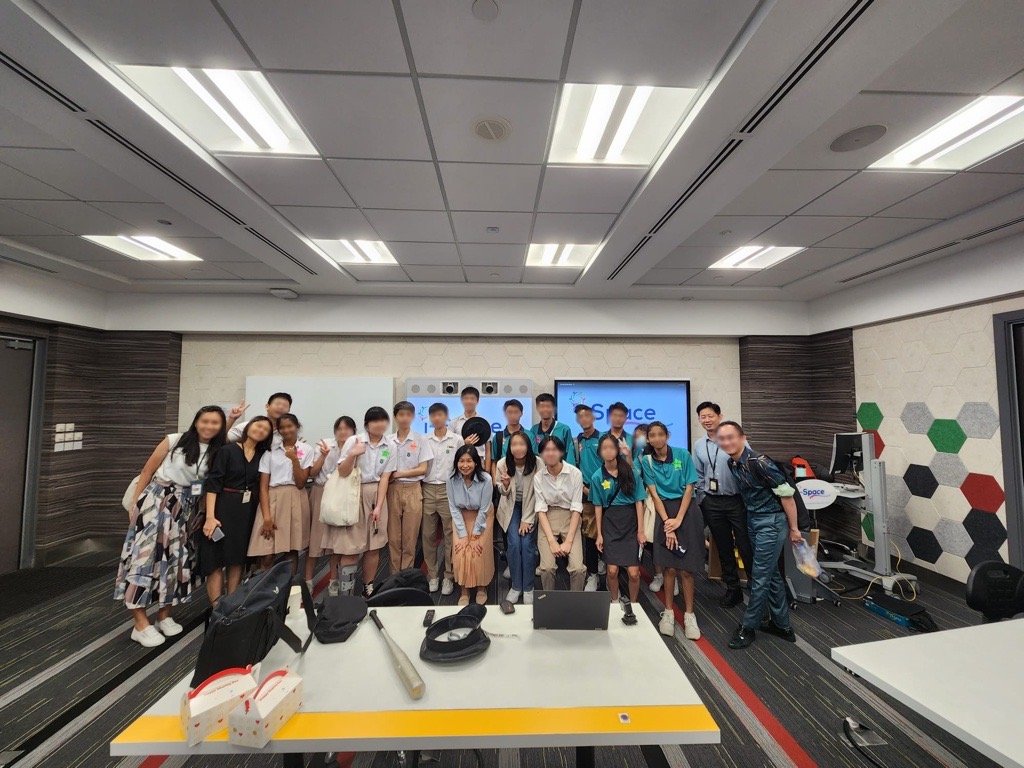
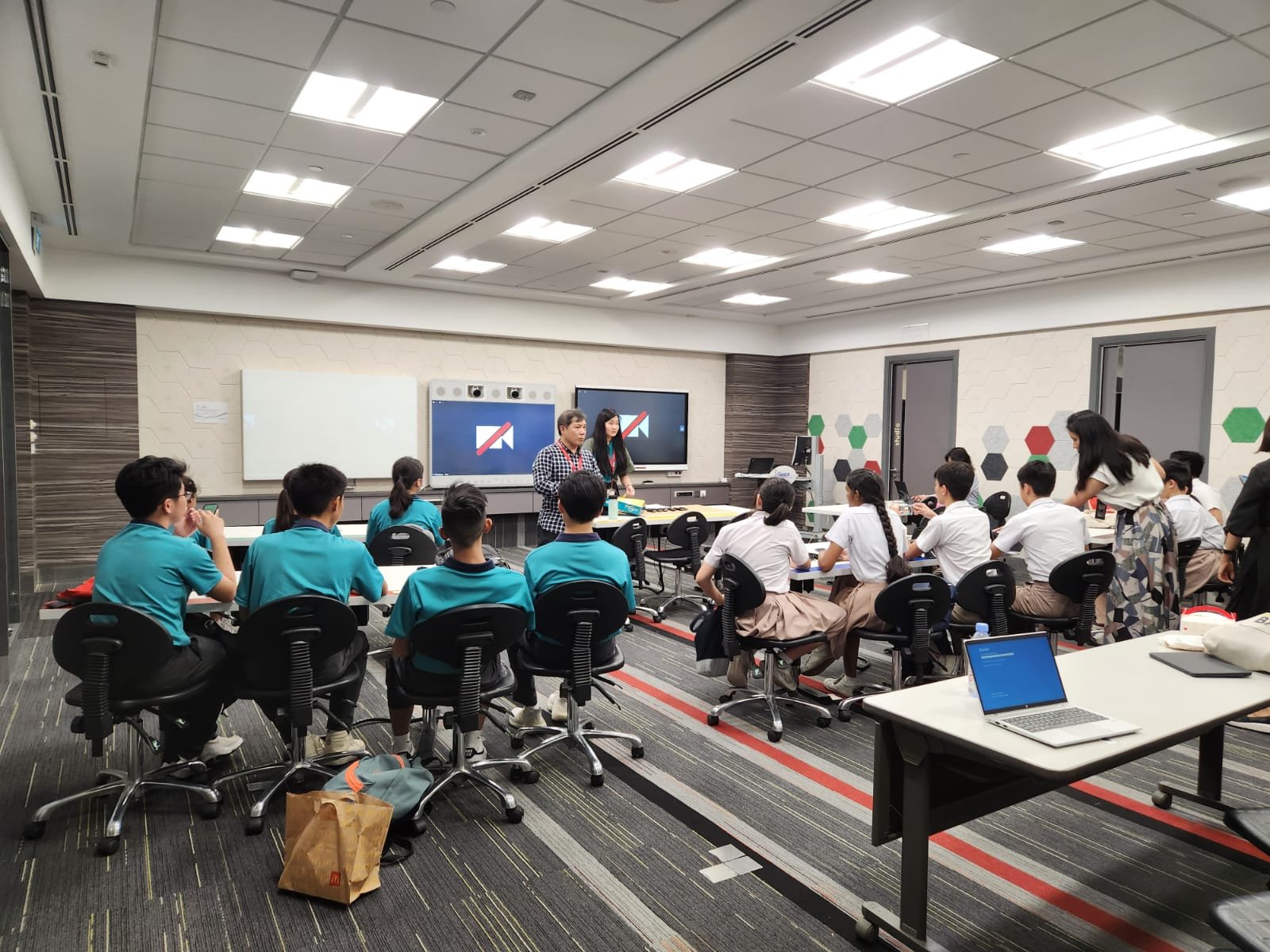
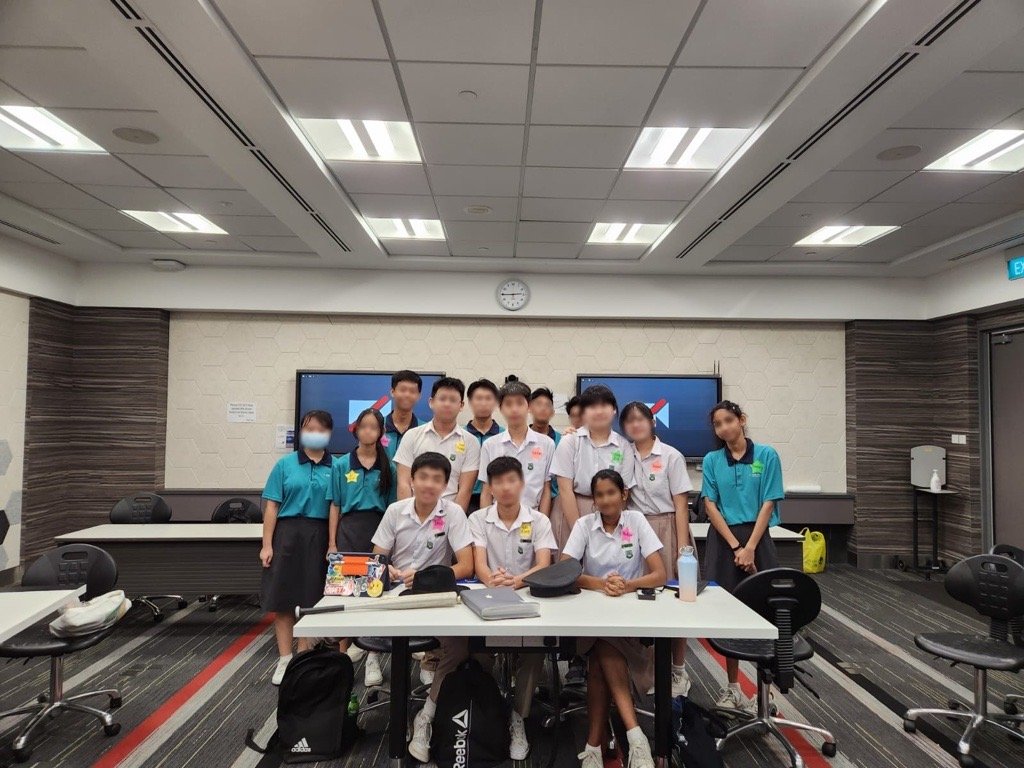
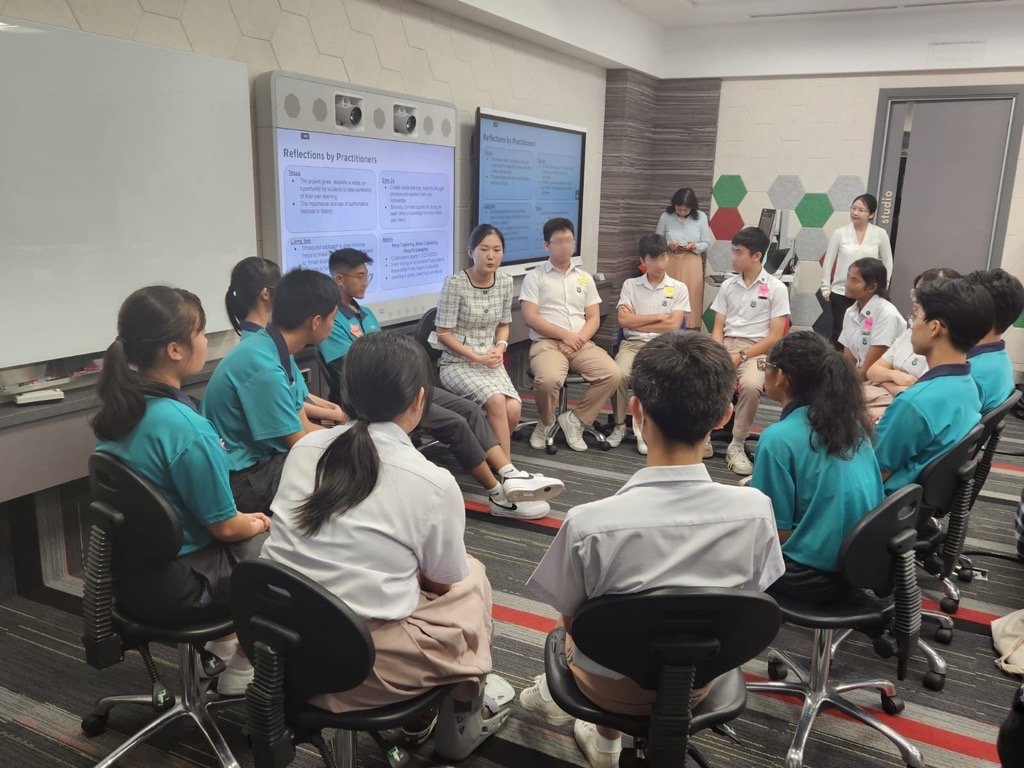
Student Knowledge Building Design Studio November 2021
The Knowledge Building team is organizing a Student KB Design Studio (KBDS) for teachers and students across Singapore on the 22nd and 23rd of November 2021. This is a continuation of our KB discourse and conversation from KBDS Jun2021 and will be a fully virtual event. We have received applicants from schools across Singapore and look forward to receive more than 50 teachers and students at the KBDS in November.
Stay tuned to find out more about the exciting activities that will be held at KBDS Nov2021!
KBDSNov2021 Refresher Course
In preparation of the Student KB Design Studio Nov2021, a KB refresher course will be taking place on the 19th November 2021.
Successful registrants who are unfamiliar with KB and the Knowledge Forum are encouraged to join this refresher course. Please reach out to your contact at NIE for more information.
Student Knowledge Building Design Studio 2021 (KBDS2021)
Update: The KBDS2021 June edition has been successfully conducted.
Event and Registration Information
The Knowledge Building team is organizing a Student KB Design Studio (KBDS) for teachers and students across Singapore on the 3rd and 4th of June 2021. Similarly to KBDS2020, this will be a fully virtual event. We have received applicants from schools across Singapore and look forward to receive more than 40 teachers and students at this year’s KBDS.
Stay tuned to find out more about the exciting activities that will be held at KBDS2021!
KBC Network Learning - March 2021
The Knowledge Building Community Network Learning (KBCNL) is back in 2021! The event has concluded and we thank all attendees for their participation. You may view the proceedings of the KBCNL here!
Schedule
3:00pm - KBDS and E-Pedagogy (Panel discussion)
Presentation of KBDS activities and relation to E-Pedagogy
Discussion Panel - Relating the panel’s experiences to current classroom practices and initiatives (E.g., digital readiness)
3:40pm - Sharing by Red School House
3:50pm - Breakout discussion regarding E-pedagogy and enhancing classroom interactions with KB
4:10pm - Consolidation
4:20pm - Keynote by Hong Kong researcher on Idea-Friend Maps
4:35pm - Q&A and Conclusion
New Education Normal Webinar Series - Scripting and Orchestration of Learning Communities
Dr Teo Chew Lee will be moderating a webinar by Professor Jim Slotta, Associate Professor Curriculum, Teaching and Learning, from OISE, University of Toronto.
New Education Normal Webinar Series - Learning Technologies in Schools Amid and Beyond the Pandemic (Part II)
Dr Teo Chew Lee, Senior Research Scientist at NIE, will be talking about case studies of teachers’ Knowledge Building (KB) communities and how teachers worked together through lockdowns caused by COVID-19 to plan and deliver lessons using the KB approach. This talk will be held as part of the New Education Normal Webinar Series on the 16th October 2020, from 3.00 to 4.30pm (GMT +8, Singapore time) using the online Zoom platform.
Please click on the above button or scan the following QR code to be directed to the registration page.
Publicity Poster

Learning Sciences and Innovation Series: Collaborative Learning and Differentiated Instruction : Principles and Practice
IER0019 - Learning Sciences and Innovation Series: Collaborative Learning and Differentiated Instruction : Principles and Practice
This in-service workshop has been organised for teachers teaching primary and secondary levels. It unpacks the principles and strategies of collaborative learning to drive principled and practical ways to differentiate instruction by interest and readiness.
The closing date for registration is 21 August 2020. For more details on this workshop, please visit the following website
Course synopsis
Differentiated Instruction (DI) is an empirically-based educational approach prompting teachers to assess students and adapt their teacher according to the needs of the students. For DI to be successful, it needs to be supported by a sound theoretical basis to help teachers interpret data and adapt their practices in a pedagogically sound manner.
Collaborative Learning (CoL) is a common form of learning in our schools since its introduction in the ICT masterplan 3. Collaborative learning is a platform for students to work together based on interests and support each other in the learning journey. This creates a natural opportunities for purposeful differentiation that serves to bridge the differences and gaps between students working in groups. CoL and DI are immediately complementary.
This course is designed to provide teachers with resources to create a learning environment that will deepen individual student’s learning by adapting strategies associated with collaborative learning and differentiated instruction. Teachers will examine and deconstruct the practices of collaborative learning to drive principled and practical ways to differentiate instruction by interest and readiness.
Practical applications of ways to elicit and understand students’ interest and readiness; and ways to maintain their learning momentum in a collaborative setting will be explored throughout the course.
Workshop - Learning Analytics for Knowledge Building Discussion
An introductory workshop to Learning Analytics for Knowledge Building Discussion has been designed for interested teachers to attend. The details of the workshop are as follow:
Date: 15 September 2020 (Tuesday)
Time: 3.30 pm to 5.00 pm (1.5 hours)
Venue: To be conducted via Zoom (Online)
Learning Analytics for Knowledge Building Discussion
Synopsis:
This is a short introductory course on the use of learning analytics in the Knowledge Forum (KF) to facilitate knowledge building (KB) discourse. KB discourse are discussions that move beyond students sharing information and toward students actively developing deeper understanding and building upon ideas. It is an important component of e-pedagogy.
The course is intended for teachers who are familiar with KF and are keen to adapt the learning analytics in their KB lessons. The course includes interactive presentations, a hands-on session and discussion. At the end of this course, teachers will learn the use of learning analytics in KF and the interpretation of the visualisation of the learning analytics in relation to 21cc and deep learning. They will also learn ways to apply the LA to support students’ KB discourse. Attendees will need access to KF.
Education in the City Series: Exploring Technology to Support Learning in the New Norm
Dr Teo Chew Lee, Senior Research Scientist at NIE, will be offering her perspectives about work in Singapore schools. The talk will be held online on the 11th September 2020, from 6 to 7pm (GMT +8, Singapore time). Registration is free and seats are limited. You may still register to be on a waitlist.
Education in the City is a series of talks that offers perspectives from researchers who work in Singapore schools that will enable the public to better understand education issues and gain practical tips on what can be done to help the students.

ICLS2020 Symposium: Emotional and Cognitive Affordances of Collaborative Learning Environments
Dr. Teo Chew Lee, Senior Research Scientist with OER/NIE, will be conducting an online symposium during the ICLS2020. One of the knowledge building teachers, Andy, will also be presenting work on social and epistemic emotion in KB at the symposium. Registration is not required for this symposium, so feel free to join us.
Symposium topic
ICLS symposium - Emotional and Cognitive Affordances of Collaborative Learning Environments
Date and time
June 22, 8:30am Toronto time, 8:30pm Singapore time, and 7:30am Evanston time.
(Duration: 90mins)
Zoom session details
Meeting ID: 507 546 1328
Abstract
Collaborative learning involves intricate interactions in which students participate in cognitive activities within social-emotional environments. Cognitive interactions mediate knowledge sharing, construction and creation while social-emotional interactions shape student perception of community climate and influence their emotional expressions, which in turn, have significant impact on their cognitive interactions. Although research has consistently found that social presence and student-student interaction has a positive influence on students’ learning through emotional engagement, subject-based teaching remained largely more of a cognitive activity. Teachers tend to treat lessons that heightened social-emotional aspects such as Character & Citizen Education separate from subject-based lessons. This symposium brings together an international group of scholars to present recent studies on emotion and cognition in real collaborative learning environments. Methods, such as self-report, video observation, affective state detection in FACET and machine learning models were adopted to investigate students’ emotions. The results collectively suggest that these methods indeed served to uncover students’ emotions; emotions such as joy/enjoyment/happiness, confidence, and surprise were associated with students’ knowledge building progress; and that students’ online interactions had a high impact on the emotional and linguistic tone of learners. The symposium aims to discuss the pedagogical implications of these methods and findings on current practice in both subject-based and non-subject-based lessons in schools.

Virtual ICT PD Webinar @ TWPS
A virtual ICT PD Series Keynote Webinar was conducted for teachers from Tech Whye Primary School (TYPS). Dr. Peter Seow Sen Kee, a Research Scientist from the Office of Education Research at NIE, and Dr. Teo Chew Lee, a Senior Research Scientist from the Office of Education Research at NIE, were invited to share their professional insights on "Remote Teaching and Learning: New Opportunities for Curriculum Innovation and ICT Integration."
The webinar was held on 12th June 2020, from 1.30 pm to 2.30 pm.
Topic
Remote Teaching and Learning - New Opportunities for Curriculum Innovation and ICT Integration
Synopsis
The COVID-19 situation has brought a disruption to teaching and learning in schools. The move to remote teaching and learning for teachers and students has seen ICT playing a critical role. However, the disruption offers an opportunity for schools and teachers to explore new teaching practices as they embark on curriculum innovation integrating the use of ICT. The two presentations will share some approaches in curriculum innovation and ICT integration based on the work in co-designing lessons with teachers over the years. The first presentation will highlight how teachers can work together in designing, enacting and improving the lessons towards sustaining teaching practices with curriculum innovation. The presentation will offer ideas for curriculum innovation and ICT integration in the moving to remote teaching and learning, and possibly how to continue with the new reality. The second presentation will share strategies and tips to actively engage students’ thinking and their ideas in both online and face-to-face context. It will also look at how teachers can support the natural flow of lessons by weaving synchronous and asynchronous technology as well as face-to-face classroom time using pedagogy tool called the “knowledge building wall”.

KB in Home-Based Learning and Beyond
With the emergence of the COVID-19 pandemic in the first half of 2020, teachers and student in Singapore faced new challenges in learning within online environments from homes, also known as Home-Based Learning (HBL). Knowledge building has also continued to be used in the HBL teaching practice, with teachers updating each other and the community on ways and methods to remotely engage students in knowledge building.
To find out more on different aspects of working with KB during HBL, click the relevant links below.
Knowledge Building: Home-Based Learning and Beyond - NLC Meeting on 8th May 2020
Knowledge Building via Zoom - NLC Meeting on 17th April 2020





















